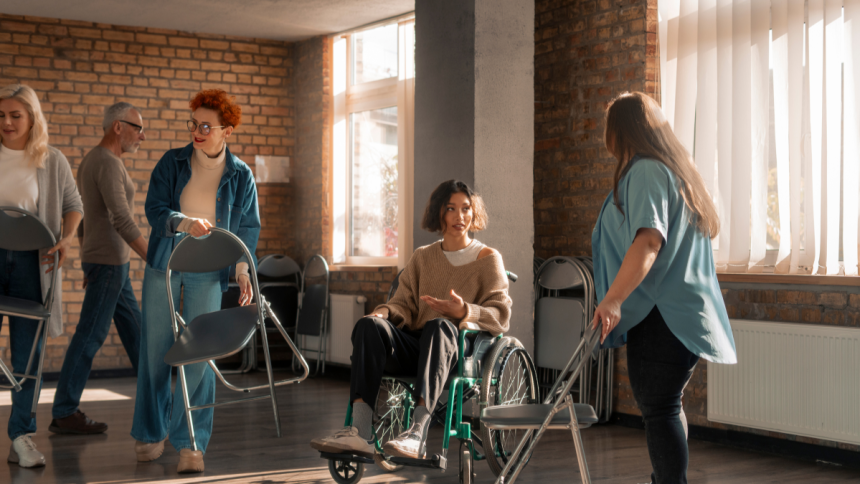When people think about addiction, the first thing that usually comes to mind is the drug itself. The problem must be the substance, right? Just stop using it, and the problem’s gone. But it’s not that simple. Getting clean isn’t only about quitting a drug. It’s about figuring out why someone needed it in the first place—and what needs to change so they don’t go back.
Quitting is the start, not the end. There’s a whole lot more going on underneath that has to be worked through. That’s what makes recovery hard, but also what makes it real.
It’s Not Just About Stopping
Someone can stop using drugs for a few days or even weeks. That doesn’t mean they’re “better.” Most of the time, there’s a reason they started in the first place—stuff like pain, anxiety, depression, pressure, or even just trying to escape a life that doesn’t feel good. Take away the drugs, and all that is still there.
That’s why real help often means more than just detoxing. Quitting doesn’t fix sadness. It doesn’t fix family problems. It doesn’t suddenly teach someone how to deal with emotions, stress, or loneliness. For a lot of people, those things were never taught in the first place.
This is why drug rehab centers are so important. They’re not just about keeping people away from drugs. They’re about giving people the tools to actually live without needing to escape all the time. If someone just quits without learning new ways to deal with life, they’re way more likely to go back—because nothing really changed.
Explore drug rehab centers that actually help people figure this stuff out—not just stop for a little while.
The Real Work Starts After Detox
Detox is what most people hear about when they think of rehab. It’s when the body gets rid of the drug and starts to heal physically. That part is tough, but it’s not the hardest part.
The real work begins after that. It’s the emotional stuff. It’s talking about the things no one wants to admit out loud. It’s going back to those painful memories or scary thoughts and trying to understand them instead of running from them.
That’s what therapy is for. That’s what support groups are for. Rehab isn’t just a place to wait until cravings go away—it’s a place to learn how to live differently. People get a chance to talk through things they’ve never said out loud, and that helps way more than most expect.
It’s a Mental and Emotional Reset
Drugs don’t just affect the body. They change how the brain works too. The longer someone uses, the more their brain depends on it to feel okay—or even just normal. So when they stop, everything feels off. Happiness, calm, focus—it all feels impossible.
That’s not a sign of weakness. It’s how addiction works. It messes with the brain’s reward system, the way it reacts to stress, even how it thinks about risk or danger. Getting clean is about giving the brain time to heal and learning how to deal with emotions without numbing them.
That emotional reset is one of the hardest things in recovery. At first, everything feels raw. But over time, those emotions get easier to handle. Learning to feel them again—without avoiding or stuffing them down—is a big part of why rehab takes time.
Building a Life You Don’t Want to Escape
One of the biggest goals in recovery is creating a life that feels worth staying in. That doesn’t mean it’s always perfect or stress-free, but it means someone finally has tools to deal with it instead of turning to drugs every time something gets hard.
This is where things like job training, relationship counseling, and healthy routines come in. Rehab helps people figure out what they want their life to actually look like. Sometimes that means fixing things they broke while using. Other times it means starting completely fresh.
It’s about finding purpose again—something to care about, something to wake up for. Whether it’s family, a dream, or just peace of mind, recovery is about making sure that thing is strong enough to keep someone going, even on rough days.
The People Around You Matter
Recovery doesn’t happen alone. Even the strongest person will struggle if they’re surrounded by people who are still using, still lying, or still pulling them back into old habits. That’s why support matters so much.
In rehab, people meet others going through the same thing. They share stories, talk about fears, and realize they’re not alone. That connection can be one of the most powerful parts of healing.
Later on, having the right people—family, friends, or a sponsor—makes a huge difference. Recovery isn’t just personal. It’s something that spreads into every part of life, including who’s in it.
There’s No “One Way” to Heal
Everyone’s recovery looks different. Some people need inpatient rehab for a while. Others do better in outpatient programs. Some focus on group therapy, others on one-on-one. The point isn’t to find the “perfect” way—it’s to find what actually works and keep doing it, even when it gets hard.
Relapses can happen, but they don’t mean failure. They just mean something still needs to be worked on. Getting clean isn’t about being perfect. It’s about staying honest, getting back up, and learning every time.
What to Remember
Getting clean isn’t just quitting drugs. It’s about healing the things that made someone turn to them in the first place. It’s about learning to feel again, building something better, and having people around who want the same.
The road’s not easy, and it’s definitely not short. But it’s real. And for a lot of people, it’s the first time they’ve ever truly felt free.
Lynn Martelli is an editor at Readability. She received her MFA in Creative Writing from Antioch University and has worked as an editor for over 10 years. Lynn has edited a wide variety of books, including fiction, non-fiction, memoirs, and more. In her free time, Lynn enjoys reading, writing, and spending time with her family and friends.















